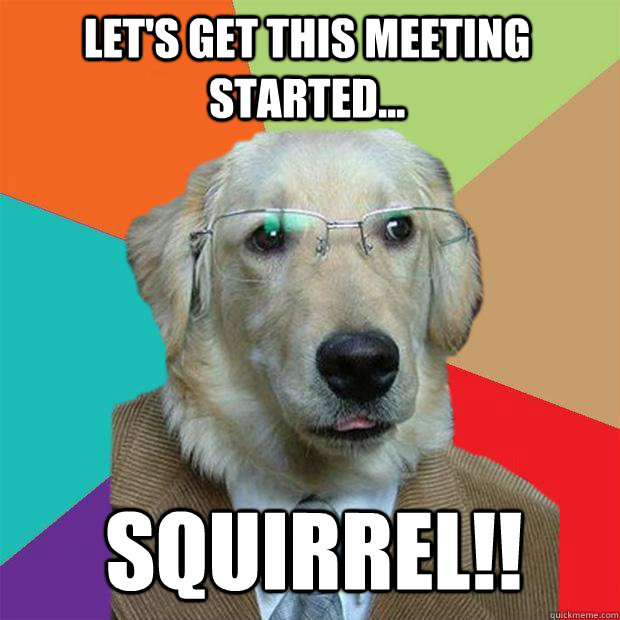How often have you thought about the differences and similarities between SAP and ERP? Have you ever felt unsure about their individual roles in business operations? Or do you wonder whether their functionalities intersect at all? These are the questions we aim to tackle in this upcoming discussion and seek to provide definitive clarifications.
There is a common misconception that SAP and ERP are identical or that they serve the same purpose. This has led to ambiguities and uncertainties regarding their proper utilization in businesses. This confusion not only hinders effective operations but also hurts the overall output. According to Forbes and an insightful article from TechRepublic, evidenced confusion exists among business professionals and IT experts alike. This article aims to dispel this misunderstanding by deeply delving into the distinctions and commonalities between the two systems.
In this article, you will learn the distinct definitions of SAP and ERP, their specific roles and utilizations in businesses, and how they complement each other. We will untangle the complexities and break it down to its simplest form for you to have a better understanding. Additionally, we would also address how their functionalities can potentially intersect and affect businesses.
By the end of the article, we aim to eliminate any lingering confusion about SAP and ERP. We aspire to help our readers to appropriately and effectively utilize these systems in enhancing their business operations. Misunderstandings may cause complications, but with sufficient knowledge, we believe businesses can optimize their efficiency and productivity.

Understanding The Key Definitions: SAP and ERP
ERP or Enterprise Resource Planning is a management software with an integrated suite of applications, designed to assist businesses in collecting, organizing, managing and interpreting data from their various business activities. It includes modules for finance, HR, manufacturing, supply chain and customer relations.
SAP, which stands for Systems, Applications, and Products, on the other hand, is a software company well-known for its ERP software. This software enables businesses to manage their processes and functions in a single centralized system. Thus, while ERP is a type of software, SAP is a company that provides ERP software.
Unmasking the Mystery: How SAP Differentiates Itself from ERP Systems
Understanding ERP and SAP
ERP, or Enterprise Resource Planning, is a business management software that businesses use to collect, interpret, and manage data from a variety of sources. ERP provides a fully integrated, concise view of core business processes in real-time. This system utilizes a common database and consistently updates it, allowing various departments to access and share information.
Business enterprise applications
Microsoft 365 Apps for Enterprise
Enterprise Business apps generator
SAP, on the other hand, is a German multinational software corporation that produces software to manage business operations and customer relations. The company’s best-known software product is its own ERP system, SAP ERP. This system has been designed to cater to the unique needs of various businesses, with modules that range from finance and logistics to human resources.
Key Differences between ERP and SAP ERP
Consider SAP ERP as a subset of the broad array of ERP systems. Though it functions similarly to other ERPs, multiple features distinguish SAP ERP from its counterparts.
- Functionality: SAP ERP offers an extensive range of functionalities that cater to nearly every industry, making it a popular choice among many businesses. It’s particularly known for its real-time data processing capability, which allows businesses to have a real-time view of their operations and make informed decisions.
- Customizability: One of the key advantages of SAP ERP is its flexibility and ease of customization. Businesses can tailor its modules based on their unique requirements. It also seamlessly integrates with other systems, which significantly simplifies cross-departmental procedures.
- Global Footprint: SAP ERP is used globally by businesses of various sizes and across different sectors. This widespread use has led to a vast community of users sharing knowledge and rapidly evolving the system’s capabilities.
Even though at first glance, SAP might seem similar to a generic ERP system, the specifics of its operation mechanism and multi-layered benefits set it apart. Using SAP ERP allows businesses to optimize their processes, thereby increasing efficiency and productivity. With a user-friendly interface, customizable modules, and real-time data processing, SAP ERP provides businesses with the tools necessary to maintain a competitive advantage in today’s fast-paced world. This proves how SAP differentiates itself from ERP systems.
Interlinking Networks: The Symbiotic Relationship Between SAP and ERP
Understanding the Intricacies of SAP and ERP
Is it possible to integrate the discrete parts of a business into a cohesive unit that optimizes productivity by creating synergies? This is where the relationship between SAP and ERP comes into focus. SAP (Systems, Applications, and Products in Data Processing) is essentially a software system that provides end-to-end solutions for logistics, financials, inventories, distributions, etc in an organisation. On the other hand, ERP (Enterprise Resource Planning) is not a software but a business process management strategy, which standardizes, streamlines, and integrates business operations across various departments. Thus, you could consider SAP as a prominent and practical implementation of ERP.
Identifying the Predicament
The primary challenge lies in the conceptual overlap between ERP and SAP, leading to inevitable confusion. While ERP is a wider concept concerning the effective management of business resources, SAP is a software product that enables ERP. The problem arises when people use these two terms interchangeably. SAP is an ERP system, but ERP is not SAP; it goes beyond it. There is an array of other ERP software like Oracle, Microsoft Dynamics, and Infor. The misconception can lead to a lack of clarity in business strategies and execution, affecting firms’ growth.
Practical Examples of Efficient Use
Numerous organizations have leveraged the power of SAP in implementing their ERP strategies to great effect. For instance, a multinational manufacturing company adopted SAP to streamline its scattered business processes. The SAP-based ERP solution provided them with the ability to centrally track and manage business components, reducing redundancies, and improving decision-making.
Another example can be found in the healthcare sector. A large hospital chain used SAP to unify its disjointed systems. By doing so, they could integrate modules like human resources, financial accounting, and patient care, resulting in enhanced operational efficiency.
Similarly, a global retail corporation applied SAP’s ERP system to create a single, standardized platform that reduced complexity in their business processes, which significantly souped-up their productivity and customer experience.
These examples demonstrate the significance of understanding and using the symbiotic relationship between a tactical approach like ERP and a technical tool like SAP to optimize organizational efficacy.
The Dynamics of Functionality: SAP Versus ERP Comparative Analysis.
Behind the Buzzwords: Distinctions and Overlaps
What does it truly mean when we delve into systems like SAP and ERP? Often tossed around interchangeably in business conversations, the two aren’t exactly synonymous despite their common roots in assisting businesses. The key understanding lies in the scopes and functionalities they offer.
In essence, ERP, or Enterprise Resource Planning, represents a wider umbrella of business management software. It integrates and streamlines multiple business functions such as finance, supply chain, operations, reporting, manufacturing, and human resource activities. The goal is simple – leveraging collective data for informed decision making and efficient operations.
On the other hand, SAP, short for Systems, Applications, and Products in data processing, is a specific ERP system. The German multinational company developed this comprehensive software suite to facilitate business operations. When businesses mention using ‘SAP’, it often means they’re utilizing SAP’s ERP system among their vast product offerings.
Digging Deeper: Why the Confusion?
The prominent problem that creates confusion between SAP and ERP is the blurred lines of their application. Many times, businesses are not clear about the precise capabilities of their implemented systems. This vagueness veils the profound functionalities that ERP systems, including SAP, offer.
This could cause businesses to underutilize their systems, meaning they’re leaving useful features on the table. While SAP is renowned for its ERP system, remember, it’s still just one example of an ERP system. Your business might fare better with an alternative system that’s more tailored to its needs. Each ERP system comes with different strengths and weaknesses. Thus, blindly assuming that ‘SAP equals ERP’ might lead to undiscovered opportunities and possible drawbacks.
Beyond Theory: Real-world SAP and ERP Execution
A quick glance at industry best practices can offer a more tangible perspective on deploying SAP and ERP systems. Take, for example, SuccessFactors, SAP’s well renowned Human Capital Management suite. Numerous enterprises worldwide have leveraged this suite’s robust abilities to manage talent effectively, gauge performance, train staff, and much more.
Alternatively, consider an organization choosing Oracle or Microsoft Dynamics as their preferred ERP system. There’s a wealth of customization offerings coupled with cloud-based options to future-proof businesses. With Oracle’s NetSuite, businesses have used real-time dashboards and automated processes for strategic decision-making and improved operational efficiency.
So, while SAP is a major player in the ERP market, it’s not the sole provider. Understanding the nuances between SAP and ERP at large is a critical step towards maximizing system functionality for business success. Deciding on the right system requires clear insights on what exactly each system brings to the table and how it can effectively map to your business needs.
Conclusion
Could we then, fundamentally confirm that SAP and ERP are the same thing? After careful consideration and comparison, we can decisively say that they aren’t identical, but they do share a significant connection. SAP is a well-known company producing software systems, and ERP is one of the many features provided by this company. It’s clear that while there are similar traits between the two, they are not exactly alike and each one carries its unique specifications and applications. They both have distinct roles in the field of business management, however, their roles and impacts are interdependent in the functional dynamics of modern business operations.
Being part of our online community will grant you an inside look at the innovating world of software technologies and business management systems. Your continued support to our blog means we can bring more of these enlightening articles to your attention. Deep diving into such topics not only enhances your knowledge but also empowers you to make informed decisions. So, if you haven’t already, do follow our blog and stay tuned for our upcoming articles.
With the rapidly evolving technology sphere, more exciting topics are lined up to be discussed and explored. The relationship between SAP and ERP is simply a glimpse into the complex world of software systems and their relevance in business operations. Let’s together explore the remarkable scope of these technologies and their potential of revolutionizing business management. And for our dedicated readers who’ve always followed us, we promise you, the best is yet to come. So, sit tight and look forward to more thrilling information in our future releases.
F.A.Q.
FAQ Section
Q1: What is SAP?
A1: SAP, which stands for Systems, Applications and Products in Data Processing, is a German multinational software corporation. It specializes in creating software to manage business operations and customer relations.
Q2: What is ERP?
A2: ERP, or Enterprise Resource Planning, is a form of business management software. It allows an organization to use a suite of integrated applications to streamline and manage the business.
Q3: Is SAP an ERP system?
A3: Yes, SAP is an ERP system. It is one of the largest providers of ERP systems globally, offering various software solutions to manage business operations.
Q4: How does SAP relate to ERP?
A4: SAP produces software that operates as an ERP system. This software helps organizations manage their business processes in an integrated environment.
Q5: Can organizations use SAP without an ERP system?
A5: No, SAP itself is an ERP system. Therefore, when an organization uses SAP, they are essentially employing an ERP system to manage their business operations.



